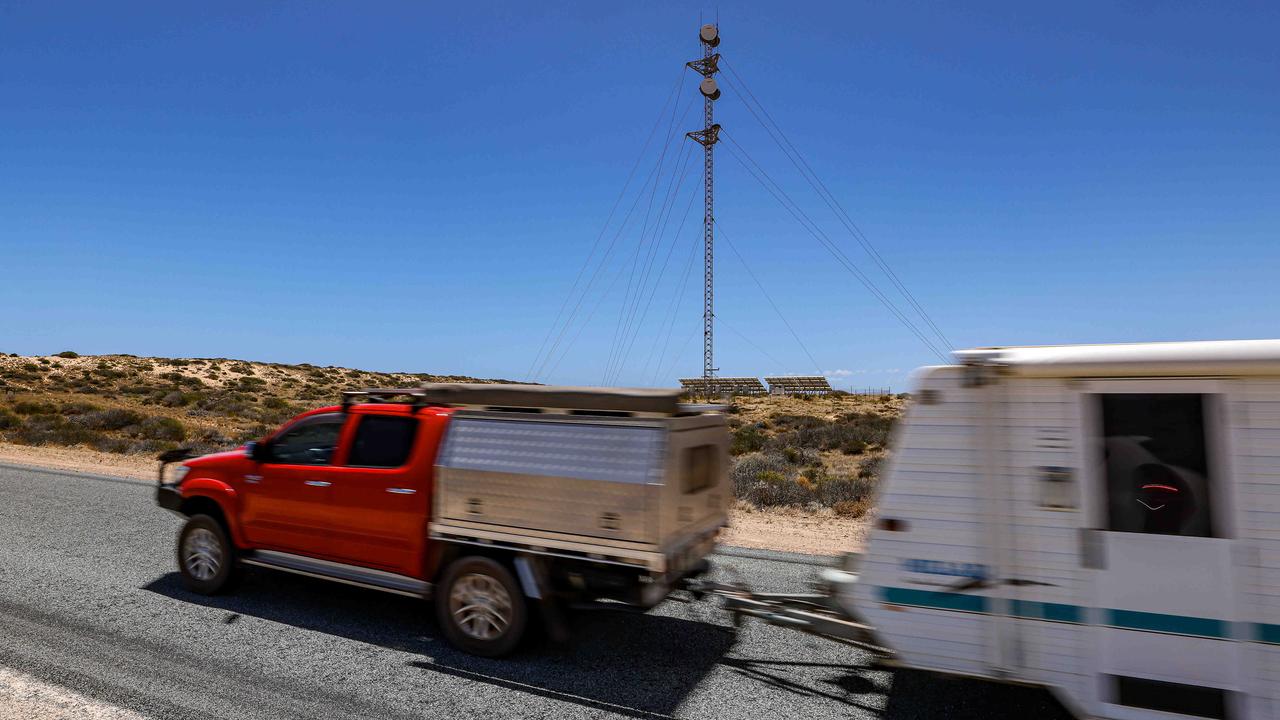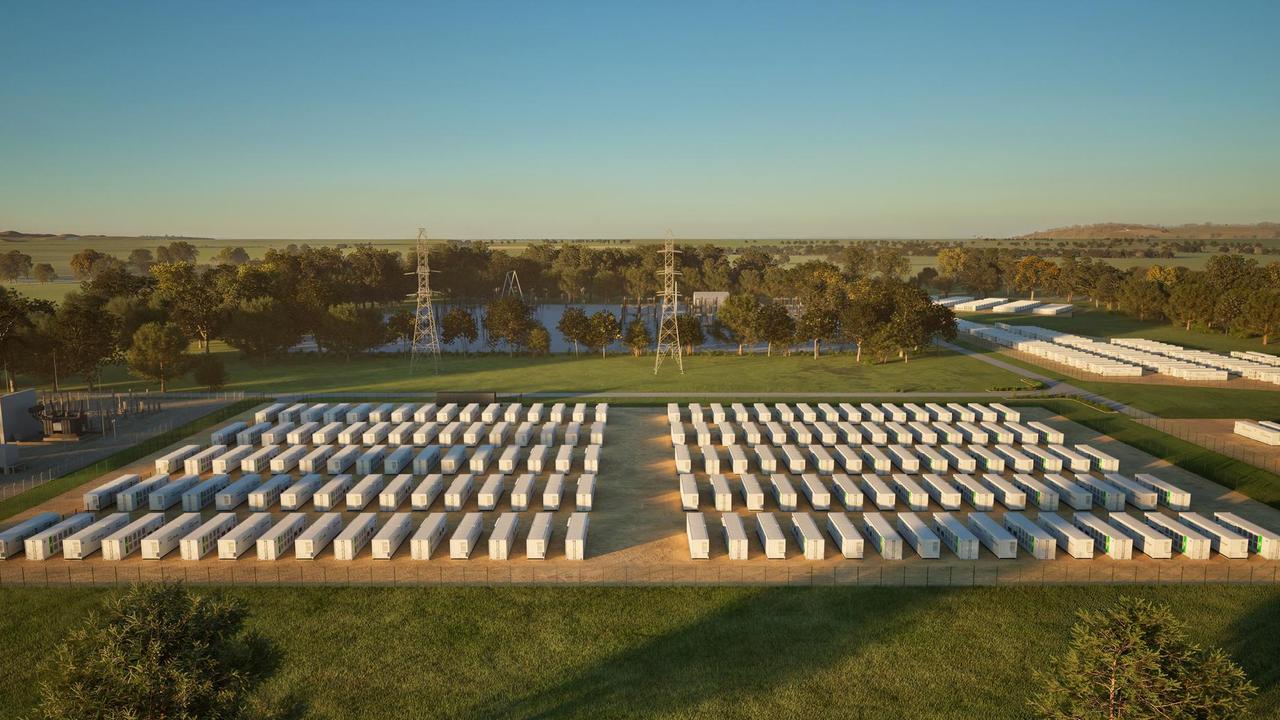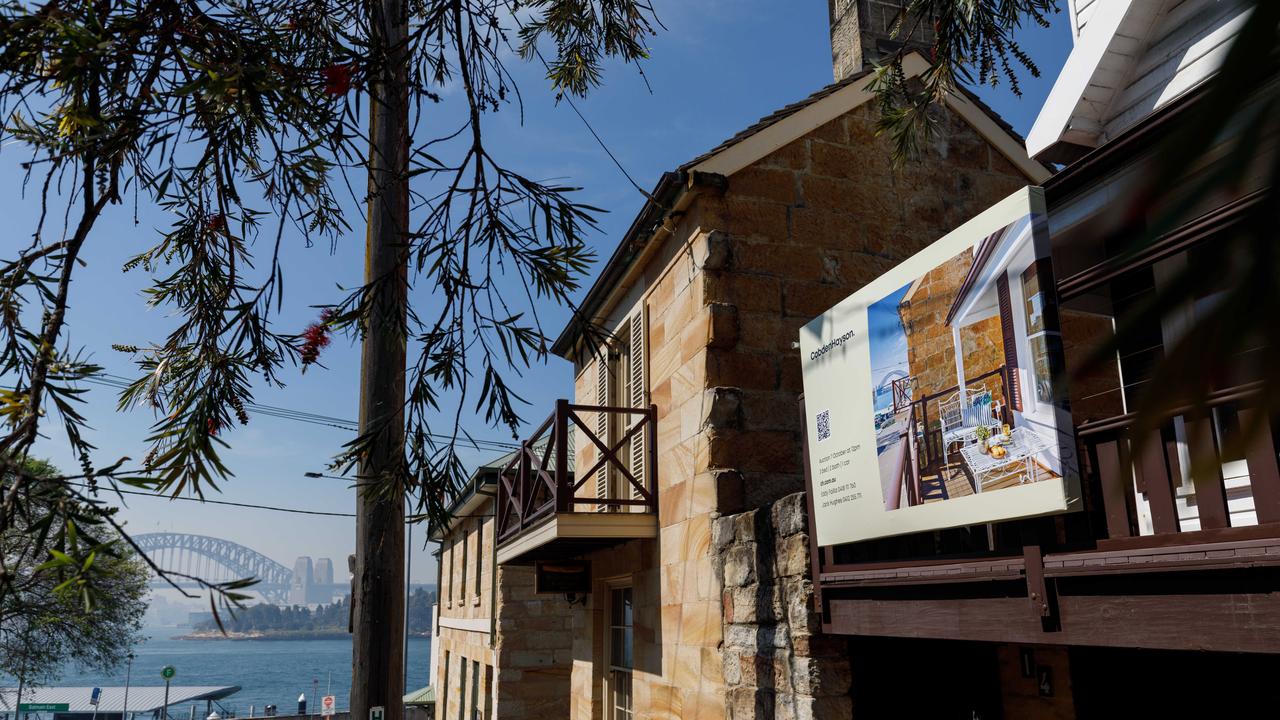ACCC ‘needs more evidence’ on the public benefit of a TPG-Telstra network deal
The competition watchdog wants more feedback on a potential tie-up between Telstra and TPG – the nation’s first and third-largest telcos.

Business
Don't miss out on the headlines from Business. Followed categories will be added to My News.
Australia’s competition watchdog has acknowledged that the long-term benefits of a TPG and Telstra network sharing plan are difficult to predict and that the deal could result in the nation’s second largest telco pulling back from rolling out 5G in regional Australia.
The Australian Competition and Consumer Commission outlined a series of concerns about the deal on Friday and said it was unsure of the long-term effects of the plan, despite there being some short-term benefit to consumers.
“The proposed transaction is likely to result in immediate improvements in each of Telstra and TPG’s offerings,” the regulator said in a preliminary report.
“These immediate or short-term public benefits need to be balanced against potential longer term impacts from any reduction in infrastructure-based competition between (mobile networks).”
The TPG-Telstra network sharing plan would result in the nation’s first and-third largest telcos sharing mobile sites within regional areas home to about 17 per cent of the nation.
It would represent the biggest shake-up to the nation’s telecommunications sector in a decade, likely elevating TPG to become Australia’s second largest telco.
The plan would give Telstra 169 of TPG’s mobile sites; meanwhile TPG would shut down its remaining 556 mobile sites in those areas and use Telstra mobile network services.
Optus – currently the nation’s second largest – claims the deal would undo three decades of competition policy and have a major impact on regional economies.
The company has campaigned for several months against the proposal but has for the past week battled the fallout of a data breach in which the personal information of nearly 10 million customers was downloaded by a hacker.
An Optus spokeswoman said the company welcomed the ACCC’s preliminary response.
“The ACCC process is continuing and Optus will continue to engage with the ACCC in this process in relation to this important matter,” she said.
A TPG spokesman said: “Infrastructure sharing is the future of telecommunications – and our proposed arrangement with Telstra demonstrates best-practice asset utilisation, delivers greater competition and capital efficiency now and in the future, and significant public benefits.”
A Telstra spokesman said the company was pleased the ACCC acknowledged the immediate benefit to regional customers.
“We note the ACCC’s preliminary view that, if the agreement were approved, Optus is unlikely to cease investing in regional Australia and will likely have incentives to continue to invest to retain their existing market share,” he said.
However, ACCC commissioner Liza Carver cited the possible removal of regional infrastructure as one of its two primary concerns regarding the long-term consequences of the deal.
“A consequence of authorisation will be actually potentially removing infrastructure from the regions. Now it’s not an extensive network, but (TPG) does exist in some regional parts of Australia,” she said.
“The second consequence is how it may impact Optus’ business case in rolling out 5G in the regions. What Optus is putting to us is that it will roll out 5G in a geographic sense where there is a business case for it to do so.”
Michelle Lim, the chair of industry association Commpete, welcomed the ACCC’s preliminary report and said the approval of the deal would likely have detrimental long-term implications.
“Handing an essential service to an already dominant single private enterprise is not a step in the right direction to serve the digital future of this nation,” she said.
“The proposal simply entrenches Telstra’s dominance and power, and further limits incentives for competition.”
Ms Carver has called for more public input on the proposed deal and whether consumers believe there is a public benefit to the plan.
“We are assessing how the proposed infrastructure and spectrum arrangements between TPG and Telstra will change the incentives and ability of Telstra, TPG, Optus, and other market participants to compete and to invest in mobile service infrastructure,” she said.
“There is still a lot of work to do on this complicated and nuanced review, which is of critical importance to competition in the mobile telecommunication sector.
“At this stage we have not reached any overall conclusions, but welcome further submissions from stakeholders and consumers alike.”
The ACCC is acutely aware of Australia’s telecommunications competition issues, having unsuccessfully tried to block the merger between TPG and Vodafone which it argued in Federal Court would lead to higher prices.
The consumer watchdog said of the proposed TPG-Telstra arrangement “it is not clear the extent to which any cost savings arising from consolidating infrastructure will be passed through to the public”.
“The ACCC considers that an increasing concentration in the ownership of regional spectrum may form a public detriment.”
More Coverage
Originally published as ACCC ‘needs more evidence’ on the public benefit of a TPG-Telstra network deal









